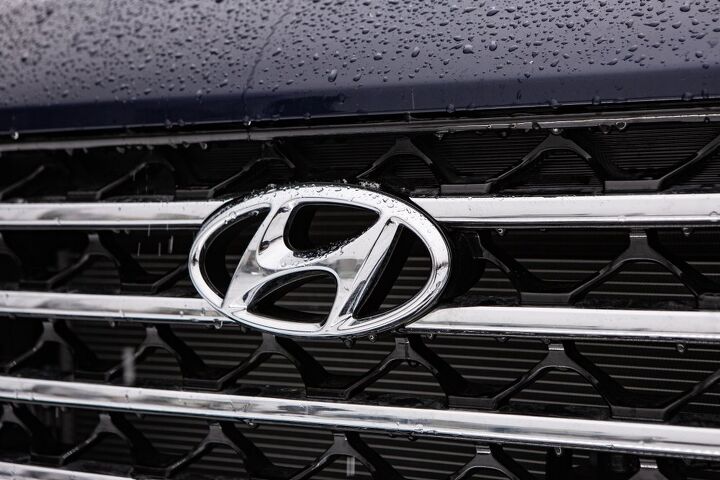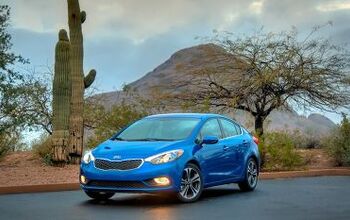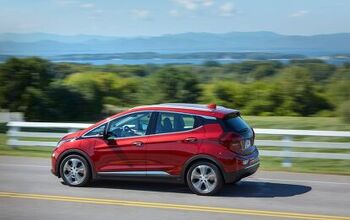Insurers Suing Hyundai/Kia Over Viral Thefts

Hyundai Motor Group might quite literally end up paying for having failed to equip engine immobilizers to some of its older models. You’ll undoubtedly recall the TikTok Kia Boyz Challenge, where “at-risk youths” utilized USB connectors on torn open ignition slots to hotwire Hyundai and Kia models. Originating in the summer of 2021, the trend was in the mainstream media the following year and caused serious publicity issues for the manufacturer.
Numerous U.S. insurance agencies have reportedly joined forces to sue the automaker for damages they claim could reach up to $600 million.
Though this is not the first time Hyundai has taken flack from insurers. Earlier this year, State Farm and Progressive (two of the largest insurance groups in the country) said they would no longer be writing policies for customers driving vehicles that lacked modern anti-theft devices — including ignition immobilizers.
In response, Hyundai has partnered with AAA to assist the impacted owners and there is a bevy of rival insurance agencies that will still cover the vehicles. Some of them are even participating in the lawsuit.
According to Automotive News, Liberty Mutual, Nationwide, American Family, and 65 other auto insurers have joined forces to assert that their share of the financial burden could account for more than $300 million.
From Automotive News:
The insurers, who filed a lawsuit in U.S. District Court in Orange County, Calif., in March, say they have already paid out $190 million. They are demanding that Hyundai Motor America, Hyundai Motor Co., Kia America and Kia Corp. reimburse them for funds paid to owners for replacement or repair of damaged or stolen vehicles.
The lawsuit said repairing broken windows and busted steering columns resulting from an attempt to break into a vehicle and hot-wire its ignition often costs an insurer more than $3,000.
It also said vehicles taken on joyrides and used to damage public property or commit other crimes can incur damages of over $10,000.
And if the vehicle is not recovered, it becomes a total loss and can be as much as $20,000.
The lawsuit is hoping to prove that Hyundai and Kia models were made particularly troublesome for the industry due to the fact that social media helped encourage thefts. Though that could be true of any hotwiring how-to that hypothetically goes viral and the entire purpose of insurance is supposed to revolve around the concept of unanticipated losses.
"Hyundai believes this litigation is unnecessary," the manufacturer said in a statement. "A subset of Hyundai vehicles on the road in the U.S. today — primarily 'base trim' or entry-level models — are not equipped with push-button ignitions and immobilizing anti-theft devices. It is important to clarify that an engine immobilizer is an anti-theft device and these vehicles are fully compliant with federal anti-theft requirements."
While the Hyundai/Kia security defect is certainly regrettable, it kind of makes you wonder how the industry managed to cope before the technology existed. Aren’t customers paying specifically to cover things like theft and damages?
The lawsuit is alleging that Hyundai and Kia failed to follow Federal Motor Vehicle Safety Standard 114, requiring a vehicle's starting system to include a way to prevent activation of the engine and steering and/or forward movement of the vehicle.
However, the National Highway Traffic Safety Administration (NHTSA) doesn’t specifically require immobilizer systems. This has left the plaintiff companies asserting that customers would have had to purchase higher-trim models in order to get the relevant security systems. They’re also suggesting that disclosures of an absent immobilizer were hidden in feature comparison charts "consumers generally do not receive, read and/or understand."
It sounds pretty flimsy to me. But a dumb enough judge might be sympathetic — not that Hyundai deserves any praise.
Rather than issuing a national recall on the estimated 8.3 million vehicles sold without immobilizers, Hyundai and Kia released a software update for certain vehicles that extends the length of the alarm by up to one minute and requires the key to be in the ignition switch to turn the vehicle on.
The probable reason? Adding immobilizers was going to cost the manufacturer an estimated $5 billion. As luck would have it, it's often easier to pay off aggrieved insurance companies than fix the problem or reimburse the impacted consumers. But we'll see how the lawsuit plays out.
[Image: Papin Lab/Shutterstock]
Become a TTAC insider. Get the latest news, features, TTAC takes, and everything else that gets to the truth about cars first by subscribing to our newsletter.

A staunch consumer advocate tracking industry trends and regulation. Before joining TTAC, Matt spent a decade working for marketing and research firms based in NYC. Clients included several of the world’s largest automakers, global tire brands, and aftermarket part suppliers. Dissatisfied with the corporate world and resentful of having to wear suits everyday, he pivoted to writing about cars. Since then, that man has become an ardent supporter of the right-to-repair movement, been interviewed on the auto industry by national radio broadcasts, driven more rental cars than anyone ever should, participated in amateur rallying events, and received the requisite minimum training as sanctioned by the SCCA. Handy with a wrench, Matt grew up surrounded by Detroit auto workers and managed to get a pizza delivery job before he was legally eligible. He later found himself driving box trucks through Manhattan, guaranteeing future sympathy for actual truckers. He continues to conduct research pertaining to the automotive sector as an independent contractor and has since moved back to his native Michigan, closer to where the cars are born. A contrarian, Matt claims to prefer understeer — stating that front and all-wheel drive vehicles cater best to his driving style.
More by Matt Posky
Latest Car Reviews
Read moreLatest Product Reviews
Read moreRecent Comments
- Yuda I'd love to see what Hennessy does with this one GAWD
- Lorenzo I just noticed the 1954 Ford Customline V8 has the same exterior dimensions, but better legroom, shoulder room, hip room, a V8 engine, and a trunk lid. It sold, with Fordomatic, for $21,500, inflation adjusted.
- Lorenzo They won't be sold just in Beverly Hills - there's a Nieman-Marcus in nearly every big city. When they're finally junked, the transfer case will be first to be salvaged, since it'll be unused.
- Ltcmgm78 Just what we need to do: add more EVs that require a charging station! We own a Volt. We charge at home. We bought the Volt off-lease. We're retired and can do all our daily errands without burning any gasoline. For us this works, but we no longer have a work commute.
- Michael S6 Given the choice between the Hornet R/T and the Alfa, I'd pick an Uber.


































Comments
Join the conversation
I finally got a letter offering the software update for Daughter No. 2's 2014 Forte LX (second-gen) sedan, that will disable the ignition when the car is locked using the remote. They're still only offering a Club-like steering wheel lock for Daughter No. 1's (now being driven by Daughter No. 3) 2012 (first-gen) Forte Koup SX. I'm still pressing H/K for a software update for that car.
Matt, the software update being offered doesn't "...require(s) the key to be in the ignition switch to turn the vehicle on" - it just disables the ignition if the car is locked using the remote, so the car has to be unlocked using the remote before the car will start.